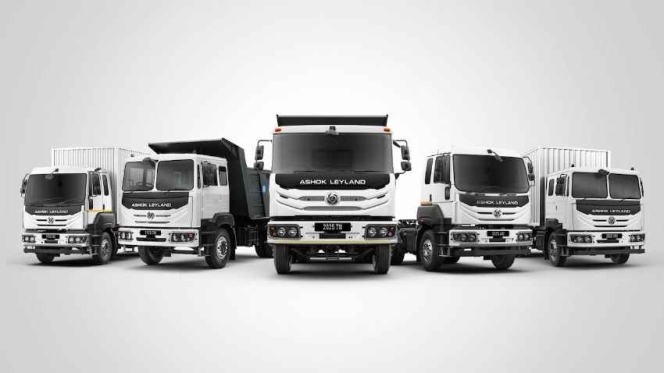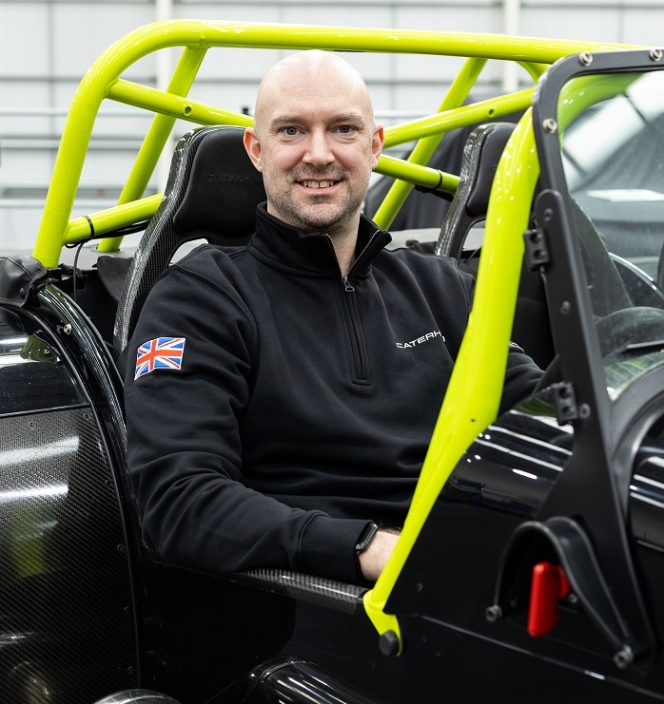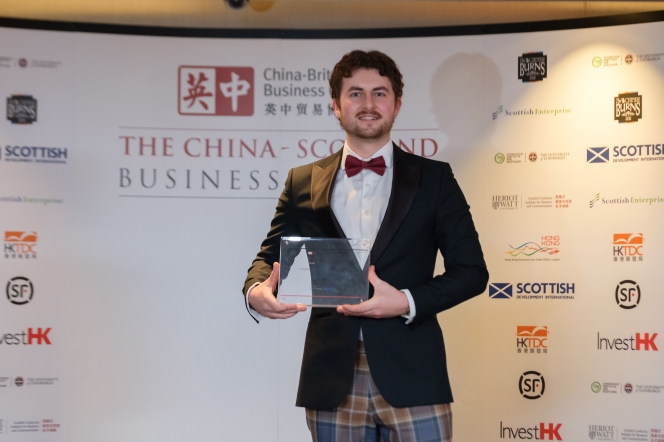Ashok Leyland drives digitisation and cost control
- By Bhushan Mhapralkar
- October 08, 2021

Recording a 353 percent increase in the revenue for the first quarter of FY2021-22 at INR 29,510 million in comparison to the revenue generation of INR 6,510 million in the corresponding quarter of FY2020-21, Ashok Leyland is confident of a strong demand emerging post the second Covid-19 wave. Clocking export volumes of 1,437 units in the first quarter of FY2021-22, up 254 percent when compared to the export of 405 units in the first quarter of FY2020-21, the commercial vehicle manufacturer is concentrating on vaccination and the adherence of safety protocols to try and ensure that all its stakeholders stay protected from a potential third wave. Experiencing a 1,041 percent growth in domestic M&HCV volume in the first quarter of FY2021-22, which is almost twice than that of the industry growth volume at 562 percent during the same period, the company has reported a net loss of INR 28,20 million in the first quarter of FY2021-22 as against a net loss of INR 38.90 million in the corresponding quarter of FY2020-21. Selling 8,690 LCVs in the domestic market in the first quarter of FY2021-22, up 224 percent as compared to the sale of 2,686 LCVs in the corresponding quarter last fiscal, Ashok Leyland is closely observing the way the freight rates are shaping up. It is confident that freight rates will improve with higher availability of commercial vehicles once the Covid-19 subsidies and uncertainty fades. “We are hoping for the volumes to grow higher as the market gets better,” mentioned Mahadevan. “July (2021) has been a growth month,” he added. Stressing that they have had eight months of degrowth, Mahadevan said, “Economic growth will induce growth in CVs.”

CV trends
Working on a strategy for a robust domestic and exports growth, the commercial vehicle major is appointing dealers in Africa. Looking at gaining good traction in South East Asia, Ashok Leyland will launch new products in the LCV segment even though not in the immediate quarter. Buoyed by the international markets opening up and experiencing export thrust, the company is said to be testing an electric version of its LCV platform on which the Bada Dost is based in the UK. This vehicle is expected to be launched at the end of this fiscal or in the first half of the next fiscal. Of the opinion that electric vehicles are catching up, especially at the local point of use, on the encouragement of the governments, Mahadevan averred, “It is more to do with buses, but trucks will catch up.” Seeing a trend of petrol commercial vehicles in the low-tonnage segment of sub-1 tonne to 1.5 tonne, Mahadevan drew attention to the push on CNG. “We are ready in the LCV and ICV (segment),” he added. Of the firm belief that diesel vehicles will continue and the IC engine will coexist and not die overnight, Mahadevan said, “We are ready to cater to higher demand.”

Watching closely how freight operators are able to pass on the fuel price hike to their end customers, Ashok Leyland is hoping that bus commute will pick up. A 40,000 units per annum market, according to Mahadevan, buses have been severely affected due to the Covid-19-led disruption. Delivering 40 electric buses to the city of Chandigarh recently (from where it has bagged an order to build and maintain e-buses with quick charging technology), Ashok Leyland is expecting pent-up demand to show up once normalcy returns. Also expecting demand to show up because of the need to ferry people without sacrificing social distancing norms, Mahadevan drew attention to their work towards further strengthening their position in the bus and LCV market segments. With the talk of schools reopening in regions where the Covid-19 infections are down, and the relaxation in Covid-19 norms in some region allowing more employees to return to their offices, bus demand is expected to improve post witnessing a sudden downfall mid-last year. Through the establishment of Switch Mobility, Ashok Leyland is keen to experience a speedier ride in the ‘cleaner and greener’ bus space.
Managing costs and productivity
Eyeing international markets like the US, Europe and Japan, the company, through the Switch Mobility subsidiary, has worked with a few consultants to make sure that its data points and numbers are on par with the current situation. Under Switch Mobility, it is developing new products to present an advantage of unique position in terms of value and premium positioning. For its Switch Mobility subsidiary that includes the erstwhile Optare of UK, Ashok Leyland has managed to get USD 18 million worth of investment from Dana Incorporated (Dana), a US-based manufacturer of drivetrain and e-propulsion systems. To do de-bottlenecking once enough demand is evident, Ashok Leyland, investing sufficiently in terms of capex, is confident of seeing early growth sprouts in LCVs. Therefore, if it were to do immediate capex investment, it would be in LCVs. Discussing with scrappage centres post the announcement of the scrappage policy, Ashok Leyland, the second-largest CV maker in the country, is witnessing good traction from its other business verticals like defence, power solutions and aftermarket. They are contributing to its top line.

With the pace of vaccination picking up and positively setting in, Ashok Leyland is expecting a demand spike in commercial vehicles after the fear of a third Covid-19 wave is over. This, according to Mahadevan, could happen in the second half of this fiscal. Focusing on costs, productivity and middle level management, the commercial vehicle major is also concentrating on reducing its carbon footprint. Apart from announcing strategic steps to move towards net zero carbon mobility through Switch Mobility, Ashok Leyland, said Mahadevan, has formed an ESG committee of the Board. The committee will guide and propel the commercial vehicle manufacturer to achieve its sustainability agenda.
As the world’s largest supplier of defence logistics vehicles, fourth-largest manufacturer of buses and the tenth-largest manufacturer of trucks globally, Ashok Leyland is driving AI-led digital transformation for strong business growth. Establishing a separate group focusing on business analytics called the Analytics Centre of Excellence, the company has invested in a data science team. It has also roped in employees from the business side to help with the information and data. Together, they have been given the responsibility to identify business function challenges being faced and how AI-enabled analytics can help resolve them. Starting roughly a decade ago and applying more thrust since 2016, the digitisation journey of Ashok Leyland has had an influence on efficiency enhancement and business optimisation. It has helped it to generate new revenue stream and build new business models. Rather than simply account for the initial acquisition price of its products, Ashok Leyland, as part of its digitisation strategy, is now participating in the lifecycle costs of its products in terms of spares, service and other value-added offerings. These lifecycle costs predominantly include those that the commercial operator or fleet incurs after he or she has bought the commercial vehicle, and until the end-of-life.
Caterham Cars Welcomes Christian Gorton As Global Head Of Sales
- By MT Bureau
- March 04, 2026

Caterham Cars has announced the immediate appointment of Christian Gorton as its new Global Head of Sales. In this key strategic position, he will oversee the company’s international sales operations and spearhead expansion efforts in vital markets worldwide.
Bringing over two decades of experience in the automotive industry, Gorton joins from CA Auto Finance, where he most recently served as a Director. In that capacity, he was pivotal in accelerating business growth, devising client-focused solutions and cementing vital industry collaborations. His career also includes significant tenures with BMW and FCA Automotive Services.
Known for his proven ability to deliver strong commercial outcomes and cultivate robust dealer networks, his expertise is seen as a perfect match for Caterham’s ambitious growth strategy. Based at the company’s headquarters in Dartford, Kent, Gorton will lead the global sales force and report directly to Trevor Steel, the Senior Vice President of Operations and CFO.
Gorton said, “I’m incredibly excited to be joining Caterham Cars at such a defining moment for the brand. The Caterham Seven represents everything I love about cars – lightweight performance, pure connection and unforgettable experiences behind the wheel. Caterham’s commitment to delivering joy to its customers truly resonates with me, and I can’t wait to work with the team to build on its incredible heritage and create the next chapter of sales growth for the business.”
Renault Group to Unveil futuREady Strategic Plan
- By MT Bureau
- March 04, 2026

Renault Group CEO François Provost and the management team will present a new strategic plan, ‘futuREady’, on 10 March 2026 at the Technocentre Renault in Guyancourt. The plan is designed to address changes in the automotive industry and establish a resilient business model.
The strategy focuses on transitioning the company from a ‘success story’ to a ‘success system’ through innovation and operational excellence. The Group intends to maintain a product offensive across its three brands to stimulate demand in Europe and high-growth international markets.
The futuREady plan emphasises the optimisation of management resources and the acceleration of production cycles. By anticipating market expectations and strengthening delivery efficiency, the Group aims to increase value and desirability across its portfolio.
Renault Group is preparing to open a new chapter in its history with futuREady, its strategic plan, designed to respond to the profound upheavals in the automotive industry and prepare the Group for a context that is more uncertain than ever. Building on its recent successes, the company will remain on the offensive with 'winning' products for each of its three brands, thus triggering a new dynamic in Europe and a targeted offensive in high-growth markets outside of Europe. futuREady is based on accelerating innovation throughout the company to anticipate market expectations. Being futuREady also means being at the top level on everything that can be controlled, by strengthening operational excellence: optimizing, accelerating and delivering efficiently to build a resilient model. The objective of the plan is clear: to move from a success story to a success system, designed to last.
Hindustan Zinc Attains 26.3% Women Workforce Representation
- By MT Bureau
- March 04, 2026
Hindustan Zinc (HZL) has recorded 26.3 percent women representation across its workforce, according to a company announcement. This figure marks the highest gender diversity level in India’s metals and mining sector.
The company employs over 745 women professionals, with 314 serving as engineers or in equivalent technical roles. Women at the company are currently involved in frontline operations, including underground mining, smelting, lead mine rescue and heavy machinery operation.
Hindustan Zinc has implemented Industry 4.0 practices, including robotics, automation and tele-remote underground operations, to standardise processes. These technologies have enabled the inclusion of women in night shifts and underground roles traditionally dominated by men.
Key workforce milestones and initiatives include:
- Frontline Roles: Women operate heavy machinery and manage night shifts in both mining and smelting units.
- Mine Rescue: The company has formed an all-women underground mine rescue team.
- Digital Infrastructure: Operations use drone-based surveillance and remote blasting systems to enhance safety.
- Workplace Policies: HZL offers a one-year childcare sabbatical, a spouse hiring policy, and work-from-home flexibility.
The company has launched a 25-day campaign titled “She Knows the Ground She Stands On” to encourage women to pursue careers in STEM and mining. As part of this initiative, 15 women from science institutions were invited to visit the company’s mining ecosystem to engage with operational teams and digital technologies.
Arun Misra, CEO, Hindustan Zinc, said, “Empowering women in mining is not merely a matter of equity, it is a strategic imperative for the future of the industry. At Hindustan Zinc, a culture has been cultivated where women lead from the front—whether operating underground mines, driving automation, or advancing sustainable metallurgy. ‘She Knows the Ground She Stands On’ reflects a commitment to challenging outdated norms and ensuring that every capable woman has the opportunity to grow and excel. As the company works toward achieving 30% diversity by 2030, the focus remains on building a workplace where inclusion fuels innovation and gender is never a barrier to excellence.”
The company aims to reach a 30 percent diversity target by 2030. The current campaign is scheduled to conclude on 8 March 2026
- BYD
- Chinese Corporate of the Year
- China-Britain Business Council
- China-Scotland Business Awards
- Chinese Burns Supper
BYD Named Corporate Of The Year At China-Scotland Business Awards
- By MT Bureau
- March 03, 2026

BYD has been named as Chinese Corporate of the Year at the China-Britain Business Council’s annual China-Scotland Business Awards held at a recent ceremony in Edinburgh. The accolade was presented during the CBBC’s Chinese Burns Supper, an event now in its 13th year and firmly established in the bilateral business calendar.
This particular award recognises the significant contribution of Chinese enterprises to the Scottish economy. The council specifically highlighted BYD’s substantial influence in advancing the sustainable growth of the New Energy Vehicle sector within the Scottish market, alongside the company’s impressive UK-wide sales performance, which has now surpassed 50,000 vehicles. Liam Howel, Deputy Head of Retailer Marketing for BYD UK, accepted the award on behalf of the company.
The China-Britain Business Council, serving as the UK’s premier business network for fostering trade and investment with China since 1954, acts as an independent voice for business, providing members with essential advice, analysis and access to opportunities.
Beyond the awards, the evening also served a charitable purpose, raising funds for the Migrant Children’s Foundation, an organisation dedicated to enhancing the lives and educational opportunities of underprivileged children in China through various health and learning initiatives.
Bono Ge, Country Manager, BYD UK, said, “It’s a huge privilege for BYD to have been presented with this award. Receiving this recognition is further endorsement that BYD is pushing in the right direction; we are not only producing cars which appeal to buyers and buses that keep the public transport sector moving but further forwarding the move towards sustainability via our energy storage solutions. Most of all, we are creating a business that supports local jobs both in Scotland and the rest of the UK.”






Comments (0)
ADD COMMENT